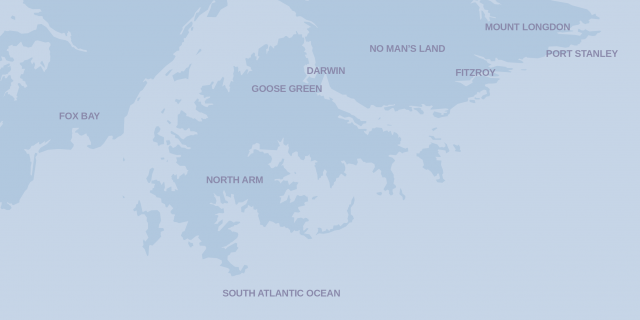Falklands 40th Anniversary
This year, we mark the 40th anniversary of the Falklands War. The conflict started on 2 April 1982 and utilised all elements of the Armed Forces. It lasted 74 days, during which 255 British personnel lost their lives.
Anniversaries and remembrance are incredibly important and hold profound meaning for the veteran community. Memories are enlivened, emotions heightened, and some can find themselves struggling to cope.
Each individual's experience and needs will be unique. However, this page contains some useful tips that may help you through this difficult period of remembrance.
Advice for veterans:
- Prepare for the anniversary in advance, make plans for healthy distractions.
- Commemorate – remember the fallen in an authentic way. If you know you’ll struggle with a large event, plan something smaller which works for you.
- Remind yourself that your distress is temporary and fluctuates in intensity. Take each day step by step and be kind to yourself.
- Talk – don’t suffer in silence. Avoiding talking is a powerful maintaining factor. It takes courage to talk, but usually those that do find huge relief and comfort.
Advice for families:
- Be aware that the date of the anniversary is often the peak. However, the impact of anniversaries can be felt well in advance and some time after. Understand that your veteran may be out of sorts or irritable. Ease their burden where you can; be interested in their feelings and experience.
- Offer space to talk without pressure to do so.
- Help to schedule activities you know your veteran enjoys.
- Take good care of yourself, too. You can only give your veteran the support they need if your needs are taken care of, too.
- Help the children to understand why Mummy or Daddy are not themselves.
Get Help
If you need to talk to someone or are a family member or carer worried about the mental health of a loved one, call our helpline.
Self-help
Self-help Online
Developed by the clinical experts at Combat Stress, these resources aim to provide guidance and support to former military personnel experiencing mental health issues.

Falklands War Timeline
Some veterans may find the following content upsetting.
The Falklands War drew upon all facets of the British Military and, sadly, 255 service personnel lost their lives in the conflict. Many more were seriously physically or psychologically injured by the event, which lasted 74 days.
Anniversaries are important times for veterans as they offer the chance for reflection and remembrance. However, with that comes potential distress. 40 years on and Combat Stress are still seeing veterans come forward, seeking help for the first time.
Below is a timeline of some of the key dates that will be in veteran's thoughts throughout this 40th anniversary period.




